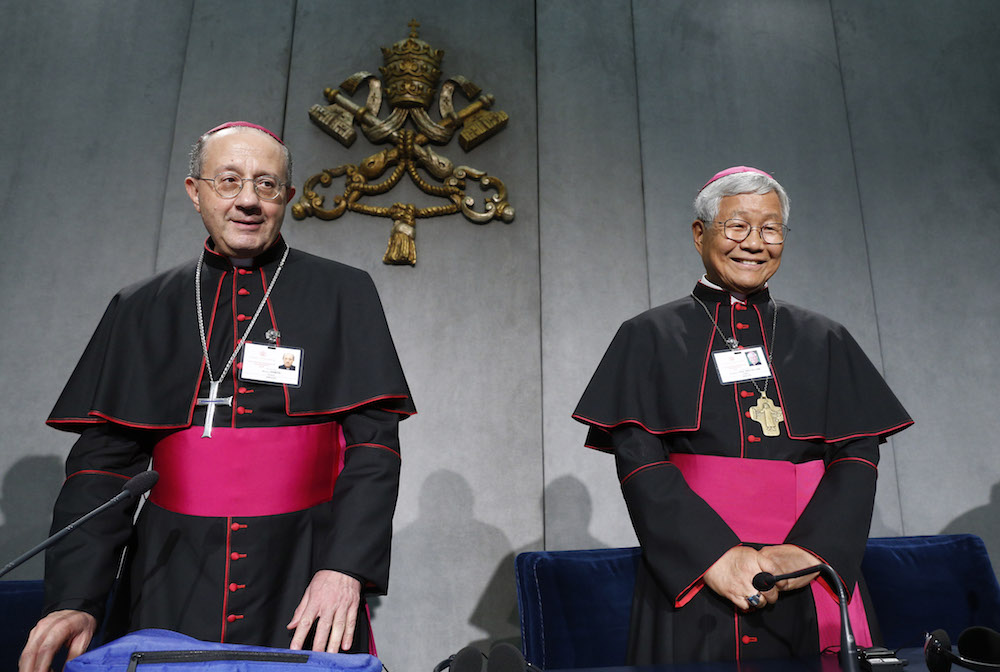A visit by Pope Francis to North Korea would be “a giant step forward” for peace and an important step in helping North Korea enter the international scene, said South Korean Bishop Lazzaro You Heung-sik on Thursday.
You Heung-sik’s remarks came during a press conference at the Vatican during the month-long Synod of Bishops on Young People, Faith, and Vocational Discernment, where he is a participant.
Earlier this week the Vatican confirmed that Francis will meet South Korean President Moon Jae-in on October 18.
The South Korean bishop added, however, that there would need to be “many steps” taken prior to a papal visit, and, in particular, the country must show greater respect for religious freedom, including welcoming Catholic priests into North Korea.
Even so, he said, the visit could be a “beautiful” opportunity, noting that he has visited the country on four occasions in his capacity as President of Caritas Korea to provide humanitarian aid. He described with great passion the “180-degree” turn of events from a year ago, when much of the world expected a war with North Korea.
He said the idea for the pope to visit the country was first mentioned to North Korean leader Kim Jong-un by South Korean president Moon, as a means of increasing the country’s international engagement.
You Heung-sik added that while a minority of South Koreans fear an opening up of the North, the overwhelming majority see such a prospect as a great opportunity that would have tremendous economic advantages for both the North and the South.
Weighing in on the recent landmark agreement between the Holy See and China on the appointment of bishops, You Heung-sik praised the accord, saying that Pope John Paul II, Benedict XVI, and Francis all “wanted this very much.”
He added that he had enjoyed several occasions to meet the two Chinese delegates participating in the Synod, Bishops Joseph Guo Jincai and John Baptist Yang Xiaoting, saying they “are my neighbors, my brothers to love.”
“I should love them even more because they have had so many difficulties,” he continued in animated fashion. “I tried to be close to them and love them, and they treat me as their older brother.”
Among other matters raised at the Thursday briefing, Italian Archbishop Bruno Forte of Chieti-Vasto, who was elected earlier this week to take part in the committee that will draft the synod’s outcome document, pushed back against reports that the final document has already been written.
Forte said the committee met on Wednesday for the first time and “it would be impossible to draw up such a text in such a time.”
In response to a question of whether abandoning the Church’s requirement of priestly celibacy had been raised during synod discussions, Forte said that it had not, adding that “the young people we deal with are open to life and the future and open to priestly vocations…including accepting celibacy.”
Moreover, he pushed back against criticism that Humanae Vitae, Pope Paul VI’s 1968 encyclical banning artificial birth control, has not been discussed during the synod, saying that it should “be the subject of its own dedicated space.”
Percival Holt, the National Youth President for the Conference of Catholic Bishops of India and an auditor at the synod, spoke enthusiastically about the work to date, saying the synod is a “clear sign of the love of the Holy Father, Pope Francis, and the Church, for young people.”
Both Forte and You Heung-sik agreed, with Forte describing the synod process as “very serene” and You Heung-si noting that “we are all united.”
“With the young people, I am becoming younger these days through this synod,” You Heung-si added.

